U.S. warns against 'new normal' as world leaders react on anniversary of Ukraine invasion

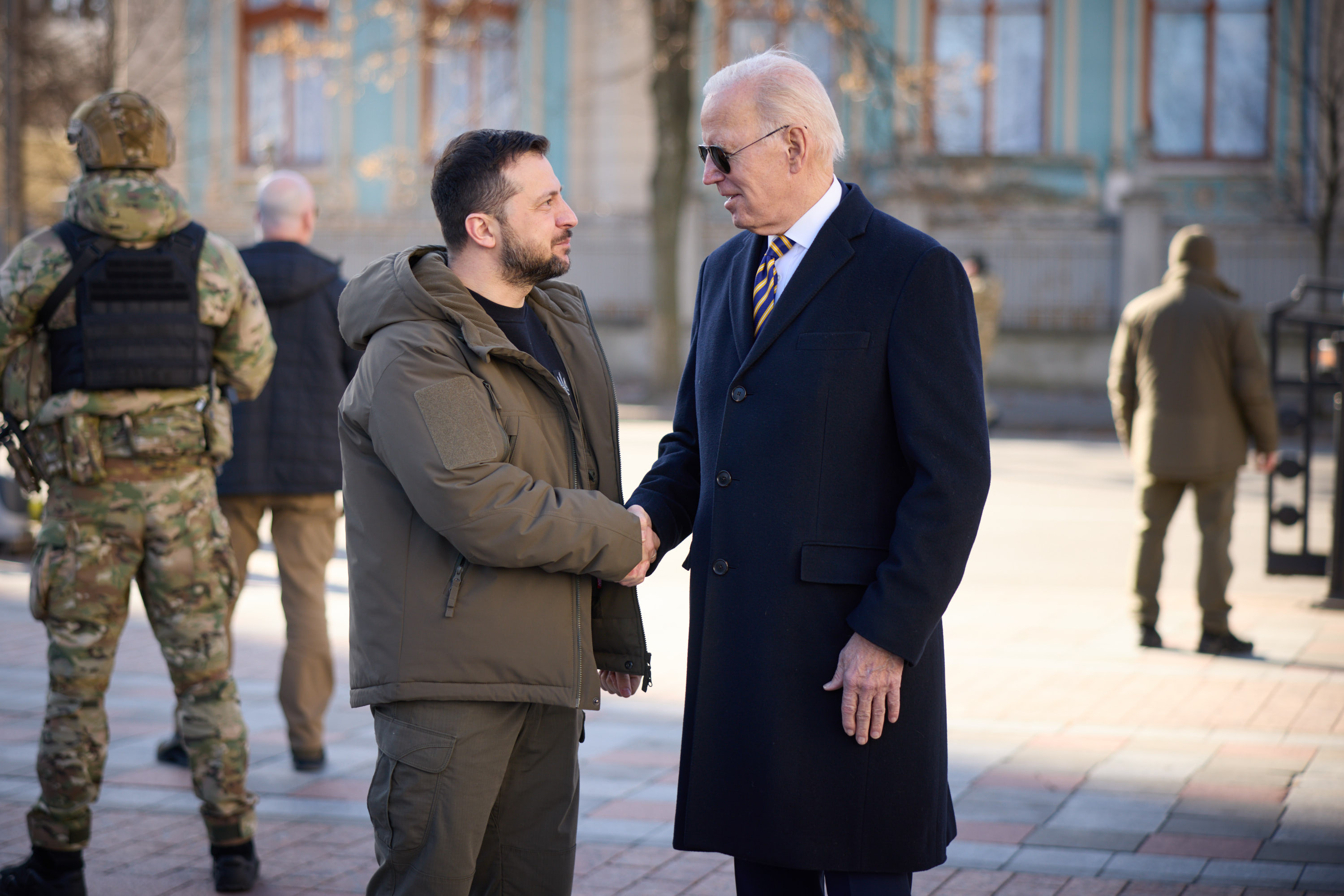
A free daily email with the biggest news stories of the day – and the best features from TheWeek.com
You are now subscribed
Your newsletter sign-up was successful
Speaking at the United Nations on Friday, U.S. Secretary of State Antony Blinken warned against accepting Russian "atrocities" committed during its invasion of Ukraine and allowing them to become "our new normal." As he told the assembled diplomats, "it's easy to become numb to the horror, to lose our ability to feel shock and outrage."

Blinken's remarks, delivered on the one-year anniversary of Russia's ongoing Ukrainian invasion, echoed similar sentiments from many other world leaders, who marked the occasion with declarations of both solidarity with Ukraine, and condemnation of Russia's continued aggression.
In a lengthy joint statement from the Group of 7 (G7) political consortium, leaders from the U.S., Canada, France, Italy, Japan, Germany, and the United Kingdom decried Russia's invasion as "an attack on the fundamental principles of sovereignty of nations, territorial integrity of states and respect for human rights." while promising the group's "solidarity will never waver in standing with Ukraine, in supporting countries and people in need, and in upholding the international order based on the rule of law."
The Week
Escape your echo chamber. Get the facts behind the news, plus analysis from multiple perspectives.

Sign up for The Week's Free Newsletters
From our morning news briefing to a weekly Good News Newsletter, get the best of The Week delivered directly to your inbox.
From our morning news briefing to a weekly Good News Newsletter, get the best of The Week delivered directly to your inbox.
Monuments across the globe also marked Friday's anniversary by lighting up in the colors of Ukraine's flag:
UK Defense Secretary Ben Wallace set a strident tone in his statement — shared in Russian by the country's Moscow embassy — predicting "dishonor and defeat" for Russia if it continues its invasion of Ukraine.
Polish President Andrzej Duda marked the occasion by swearing "no return to business as usual with Russia! " while lauding his citizens for opening their homes to Ukrainian refugees fleeing the violence. "There were and there are no refugee camps in Poland," Duda exclaimed. "We welcomed and continue to welcome our guests in our homes."
China, seen by some as a potential backer of Russian military efforts in Ukraine, has spent the lead-up to Friday's anniversary attempting to position itself as a neutral arbitrator poised to negotiate a settlement between the two countries; it has proposed a 12-point plan to end hostilities between Russia and Ukraine that includes calls for a cease-fire, and the repeal of sanctions against Russia established in response to its invasion. In his remarks to the UN, Blinken seemingly dismissed the plan, noting that "many countries will call for peace today," but "history teaches us that it's the nature of peace that matters."
A free daily email with the biggest news stories of the day – and the best features from TheWeek.com
Speaking during an extensive news conference, however, Ukrainian President Volodymyr Zelensky seemed more open to Chinese involvement in the region, explaining that "the fact that China started talking about Ukraine is not bad." Earlier in the day, Zelensky heralded the Ukrainian troops for their efforts in repelling Russia's attacks. "It is you who will decide whether we are all going to exist. Whether Ukraine is going to exist," he told them. "Every day. Every hour. It is you, Ukrainian soldiers, which will decide it."
Rafi Schwartz has worked as a politics writer at The Week since 2022, where he covers elections, Congress and the White House. He was previously a contributing writer with Mic focusing largely on politics, a senior writer with Splinter News, a staff writer for Fusion's news lab, and the managing editor of Heeb Magazine, a Jewish life and culture publication. Rafi's work has appeared in Rolling Stone, GOOD and The Forward, among others.
-
 ‘The West needs people’
‘The West needs people’Instant Opinion Opinion, comment and editorials of the day
-
 Filing statuses: What they are and how to choose one for your taxes
Filing statuses: What they are and how to choose one for your taxesThe Explainer Your status will determine how much you pay, plus the tax credits and deductions you can claim
-
 Nan Goldin: The Ballad of Sexual Dependency – an ‘engrossing’ exhibition
Nan Goldin: The Ballad of Sexual Dependency – an ‘engrossing’ exhibitionThe Week Recommends All 126 images from the American photographer’s ‘influential’ photobook have come to the UK for the first time
-
 The ‘mad king’: has Trump finally lost it?
The ‘mad king’: has Trump finally lost it?Talking Point Rambling speeches, wind turbine obsession, and an ‘unhinged’ letter to Norway’s prime minister have caused concern whether the rest of his term is ‘sustainable’
-
 Trump sues IRS for $10B over tax record leaks
Trump sues IRS for $10B over tax record leaksSpeed Read The president is claiming ‘reputational and financial harm’ from leaks of his tax information between 2018 and 2020
-
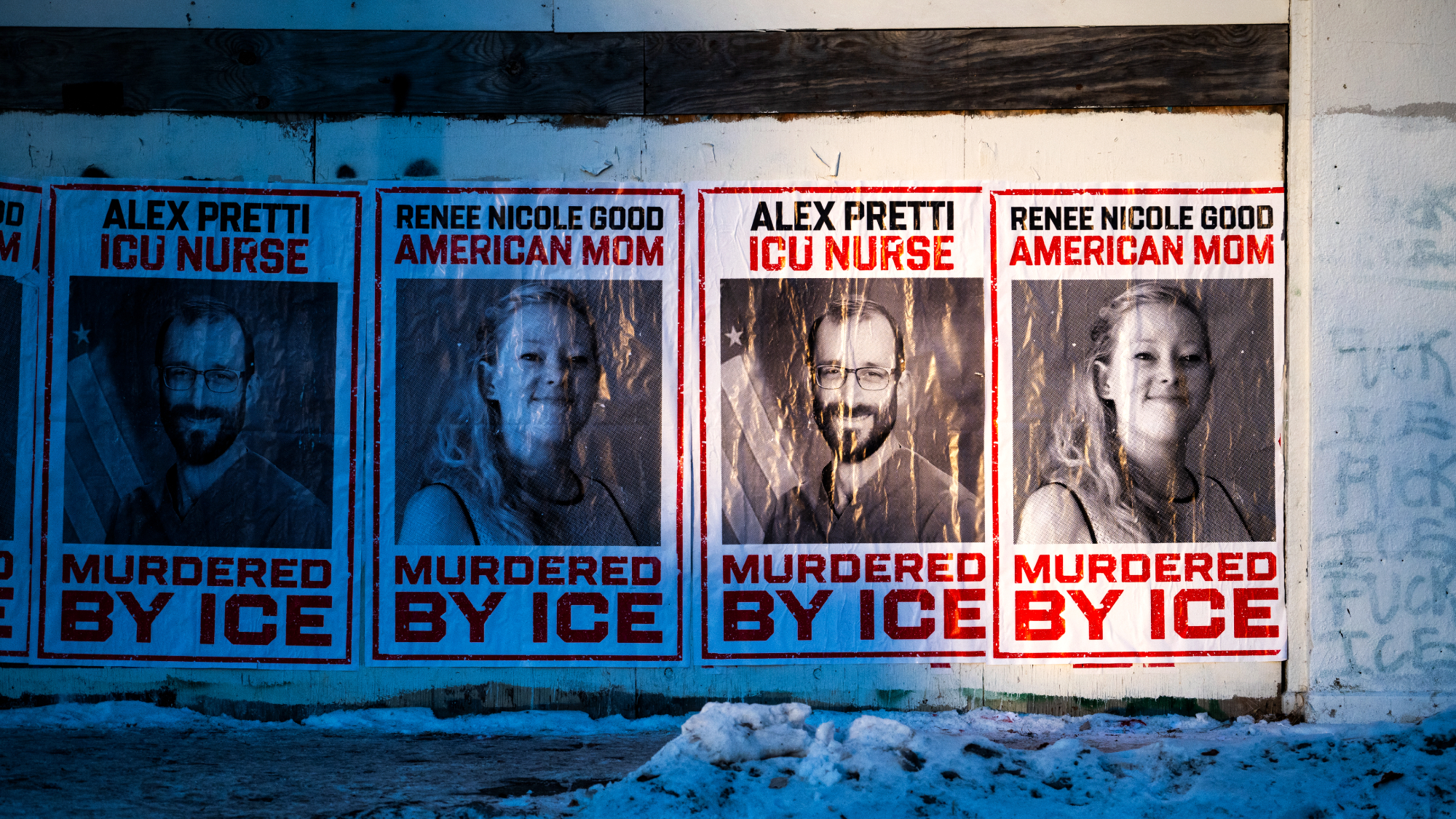 Trump, Senate Democrats reach DHS funding deal
Trump, Senate Democrats reach DHS funding dealSpeed Read The deal will fund most of the government through September and the Department of Homeland Security for two weeks
-
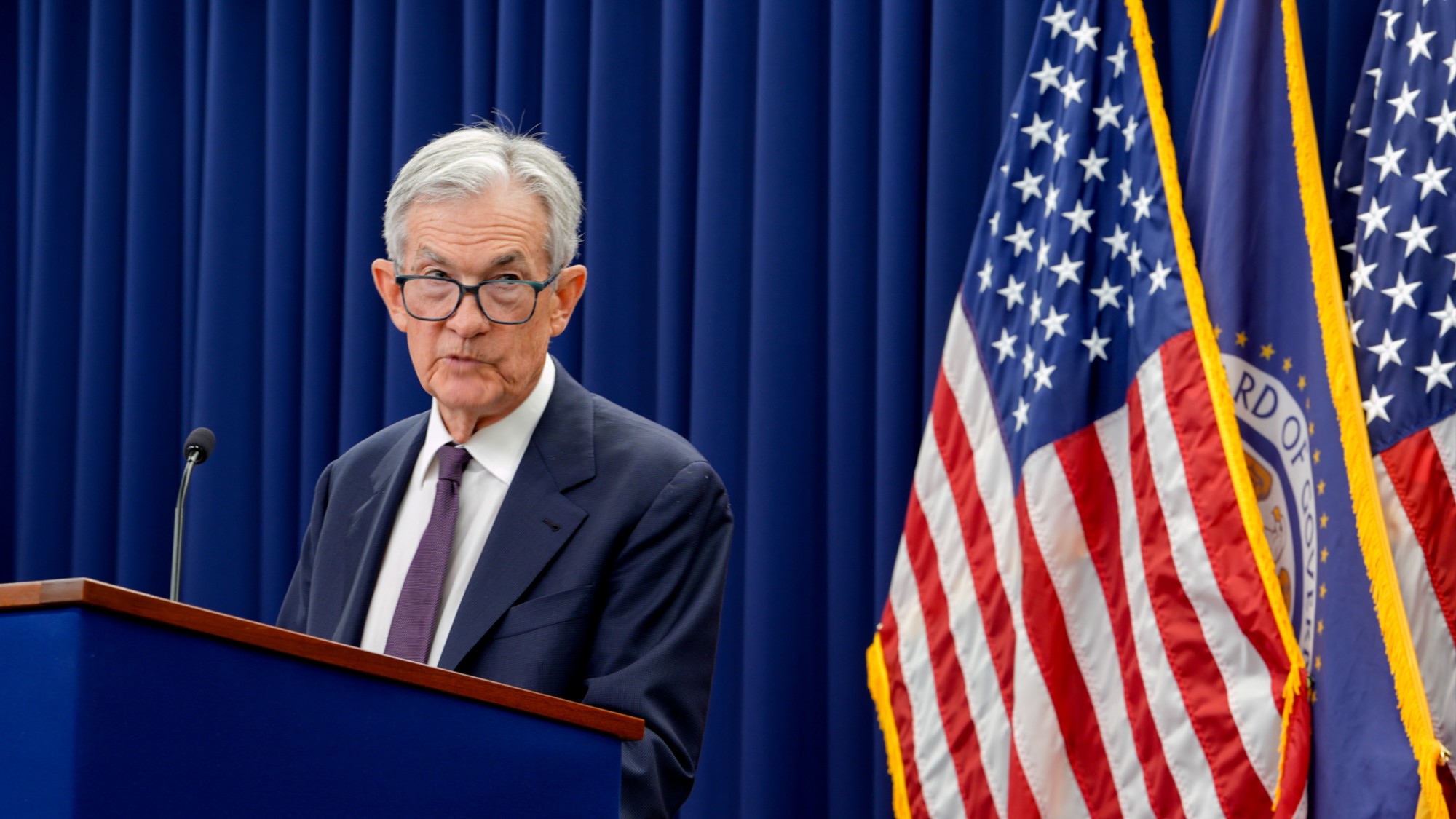 Fed holds rates steady, bucking Trump pressure
Fed holds rates steady, bucking Trump pressureSpeed Read The Federal Reserve voted to keep its benchmark interest rate unchanged
-
 Judge slams ICE violations amid growing backlash
Judge slams ICE violations amid growing backlashSpeed Read ‘ICE is not a law unto itself,’ said a federal judge after the agency violated at least 96 court orders
-
 Rep. Ilhan Omar attacked with unknown liquid
Rep. Ilhan Omar attacked with unknown liquidSpeed Read This ‘small agitator isn’t going to intimidate me from doing my work’
-
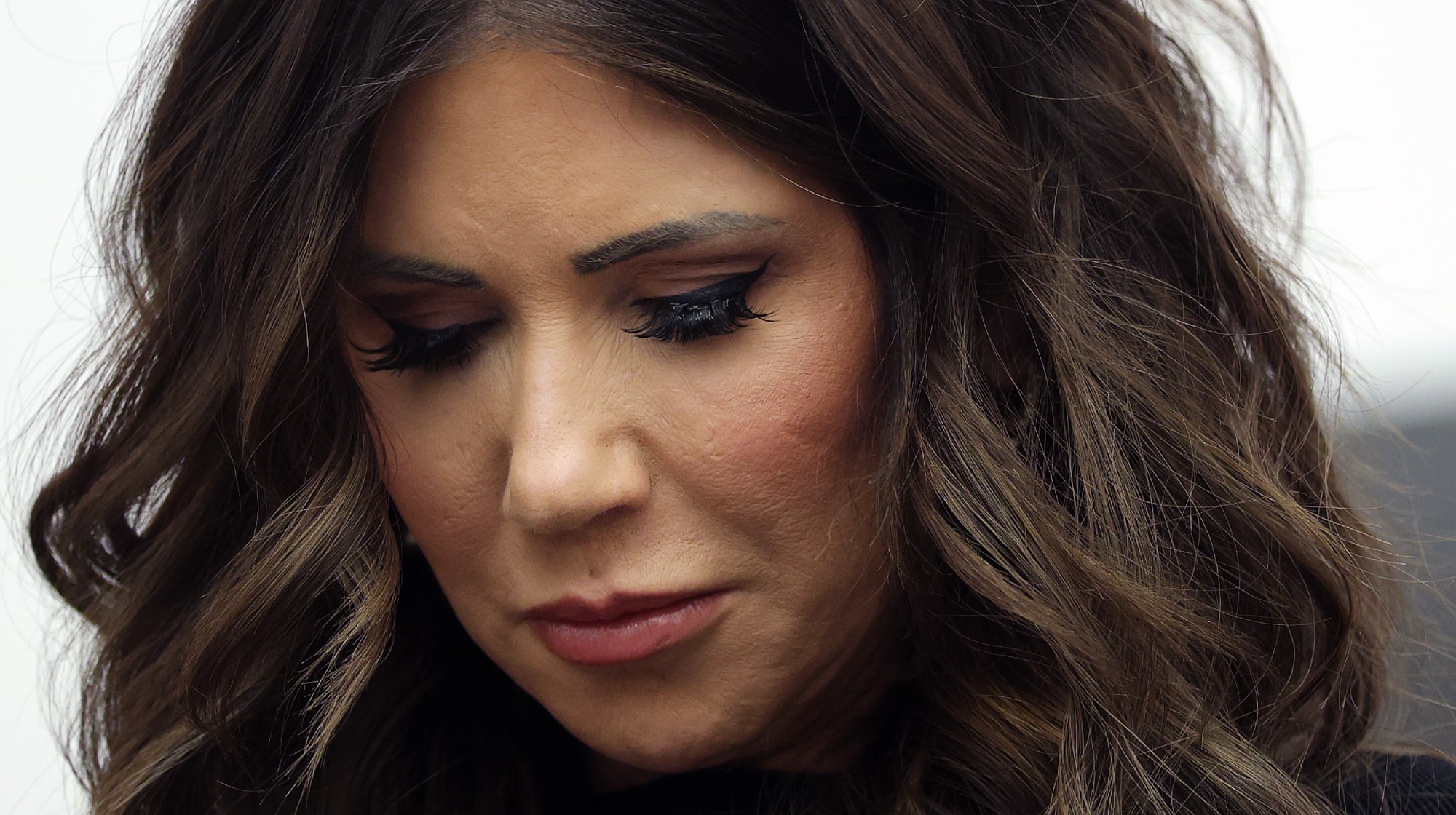 Democrats pledge Noem impeachment if not fired
Democrats pledge Noem impeachment if not firedSpeed Read Trump is publicly defending the Homeland Security secretary
-
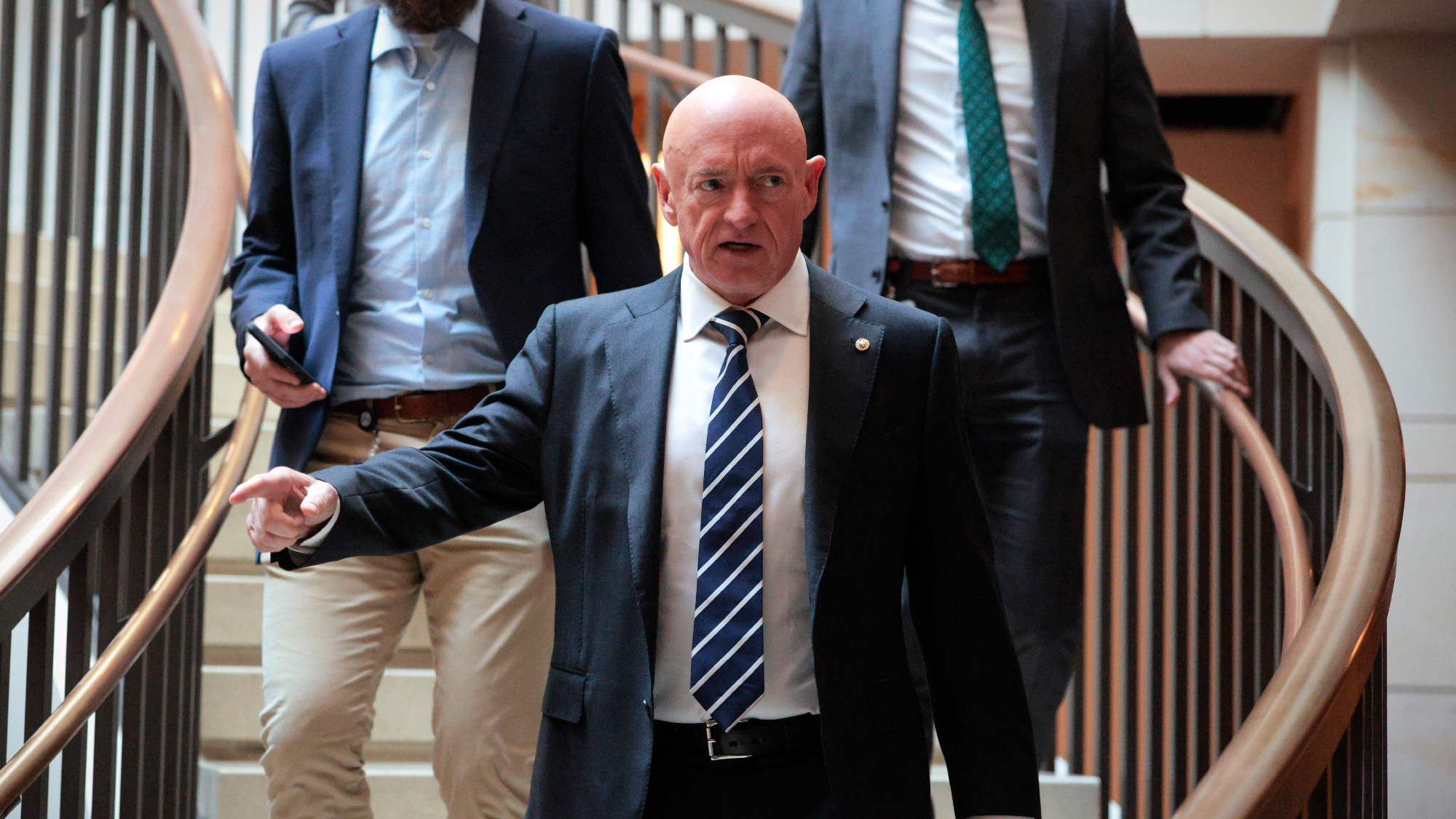 Hegseth moves to demote Sen. Kelly over video
Hegseth moves to demote Sen. Kelly over videospeed read Retired Navy fighter pilot Mark Kelly appeared in a video reminding military service members that they can ‘refuse illegal orders’
